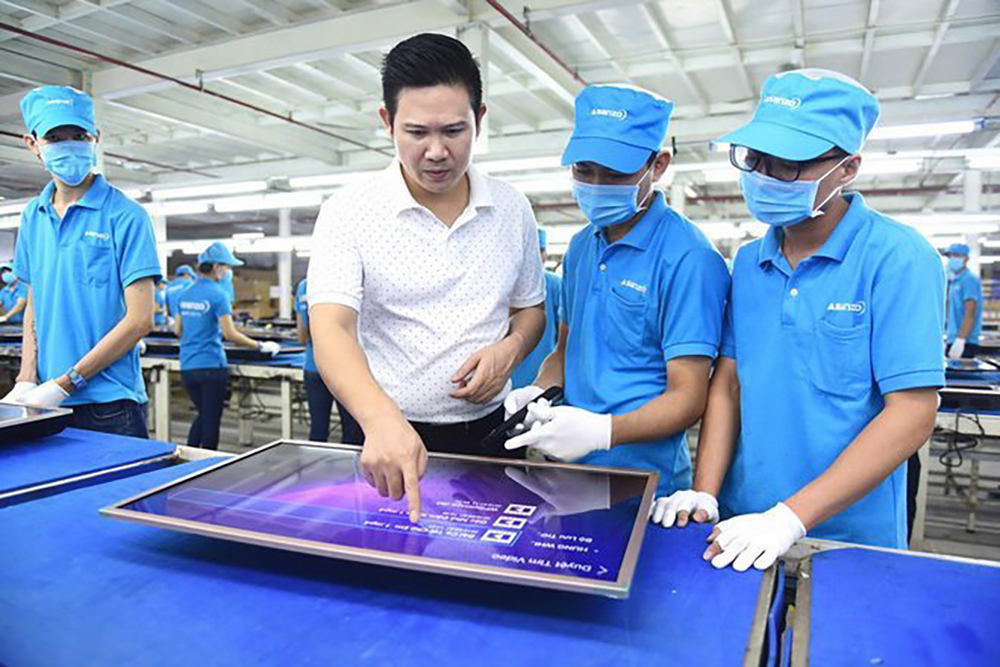
This regulation concerns "Made in Vietnam" goods, proposed by the Ministry of Industry and Trade to the Government in 2018. However, six years later, it has not been issued.
The proposal was initiated after customs investigated the origin of Asanzo's goods when Mr. Pham Van Tam was the chairman. At that time, the General Department of Customs suspected Asanzo and related companies of four main violations: infringement of industrial property rights, consumer deception, origin violations, and tax evasion.
The Ministry of Public Security's Investigation Police Agency (C03) investigated to clarify signs of "manufacturing and trading in counterfeit goods" and "deceiving customers" by importing and relabeling goods and components from China as "Asanzo" products of Vietnamese origin for domestic consumption or export. They also investigated potential signs of "smuggling" or "tax evasion."
A significant issue arose from Asanzo's fraudulent labeling practices, as current law did not regulate the origin of domestically assembled and circulated goods. There were no criteria for labeling goods as "Made in Vietnam," making it challenging to conclude if Asanzo's actions were legally wrong.
In response, the Ministry of Industry and Trade actively developed content for regulations on this matter.
However, despite many discussions, the draft regulation has not been issued as a circular or decree.
In an August 2023 report to the National Assembly Standing Committee, the Ministry of Industry and Trade highlighted numerous difficulties in issuing regulations and conditions for goods considered "Made in Vietnam," applicable to domestically circulated goods.
The Ministry acknowledged that the "Made in Vietnam" regulation was proposed in 2018. One major obstacle has been the lack of criteria and conditions for businesses to label goods as "products of Vietnam" or "Made in Vietnam."
Initially, the Ministry intended to develop a circular on "Made in Vietnam." By 2019, the circular's content included policies beyond the Ministry's authority, prompting a shift to develop a decree instead.
In 2021, the Government issued Decree 111/2021/ND-CP, amending Decree 43/2017/ND-CP on product labeling. This decree included content on product labeling, thus shifting the focus of "Made in Vietnam" regulations to providing origin criteria for labeling purposes.
By May 2022, the Government allowed the Ministry to revert to developing regulations at the circular level. However, the authority to issue these regulations has faced challenges.
Another reason for the delay is the potential legal risks and negative reactions from businesses to stricter regulations at the circular level compared to current domestic goods regulations.
Additionally, concerns about the compliance costs for businesses have contributed to the delay. While import-export enterprises are familiar with origin concepts, smaller businesses and individual households may find compliance difficult and costly.
In the context of current economic difficulties, the Ministry of Industry and Trade believes issuing new regulations incurring compliance costs for businesses is not appropriate.
The Ministry has stated it will work with the Ministry of Justice to address issues related to issuing authority and consider implementing the regulation at an appropriate time to minimize the impact on business operations.
Luong Bang